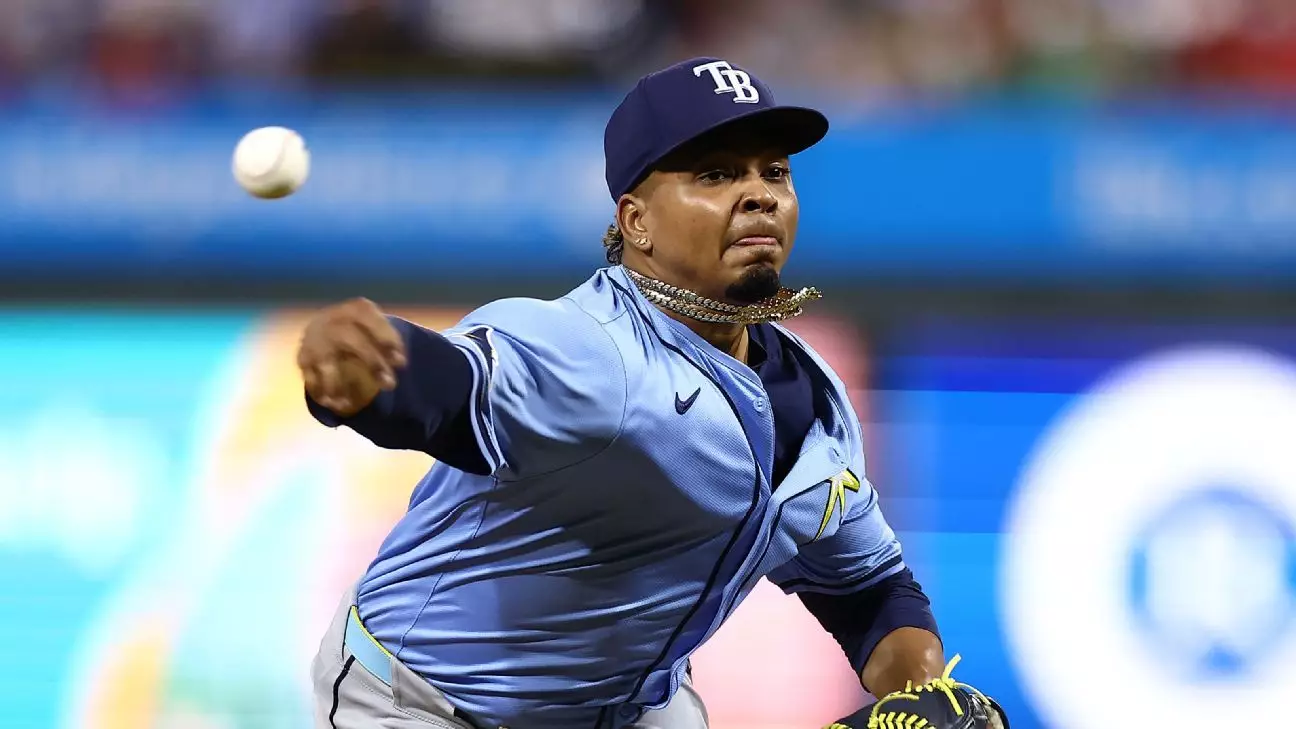The recent events surrounding Tampa Bay Rays reliever Edwin Uceta during a game against the Philadelphia Phillies have ignited fierce debates about sportsmanship, player safety, and accountability in baseball. Uceta’s suspension of three games, along with a fine imposed by Major League Baseball (MLB), stemmed from his controversial pitch that struck Phillies outfielder Nick Castellanos. This incident raises crucial questions about the intentions behind such actions in high-stakes games and the subsequent repercussions for players and teams involved.
Understanding the Situation
During the game, Uceta found himself in a precarious position on the mound. After yielding a tiebreaking double and two runs, his performance was under scrutiny, and his frustration was palpable. When Castellanos came to the plate, Uceta threw a 96 mph pitch that caught Castellanos on the hip. Although Uceta claimed the pitch was a changeup and not intentional, Castellanos and the Phillies were quick to suspect otherwise. Castellanos expressed his feelings compellingly, stating, “I had an overwhelming sense that I was about to get drilled.” Such sentiments from players only highlight the broader issue of how pitchers handle mounting pressure and their demeanour on the field.
The Role of Emotions and Competitive Dynamics
In high-pressure sports environments, emotional responses can escalate quickly, leading to aggressive actions that may not always be rational. Uceta’s reaction seemed to stem from a mix of competitive frustration and a lapse in self-control, a situation common in professional sports. The immediate aftermath of Castellanos getting hit also saw both teams empty their benches in a show of solidarity against perceived wrongdoing, reflecting the protective nature players often feel towards one another. This incident illustrates how quickly tensions can rise and how critical it is for players to maintain composure.
Consequences and Accountability
The announcement of Uceta’s three-game suspension, coupled with Rays manager Kevin Cash’s one-game suspension, underscores the league’s commitment to enforcing standards of conduct among its players. However, the effectiveness of such disciplinary actions has always been a topic of contention among fans and analysts. If there is a perception that players face too lenient of consequences for irresponsible behaviour, it may contribute to a culture where aggressive pitches become the norm rather than the exception. Furthermore, the question of whether Uceta will appeal his suspension adds another layer of complexity to the situation; any appeal could indicate a willingness to challenge the severity of the punishment, potentially opening a dialogue about how such incidents should be addressed in the future.
Turning to Uceta’s performance prior to this incident, he had been having a strong season, boasting a 2-0 record with a 1.49 ERA and entering the game with a staggering 0.79 ERA. Thus, this unfortunate moment could not have come at a worse time for both Uceta and the team, tarnishing what was shaping up to be a breakout year. Such suspensions not only affect the individual player but can shift the dynamics of the team, especially if the penalty leads to losses in important games in the competitive landscape of Major League Baseball.
The fallout from Uceta’s actions serves as a stark reminder of the fine line players walk between competitive aggression and unsportsmanlike conduct. As the Rays organization navigates these turbulent waters, the overarching theme remains clear: accountability and the necessity of maintaining a respectful spirit within the game are vital for its integrity. As teams continue to grapple with these pressures, the league must continually evaluate how to best foster an environment where players can compete hard while ensuring the safety and respect of all involved.


Leave a Reply